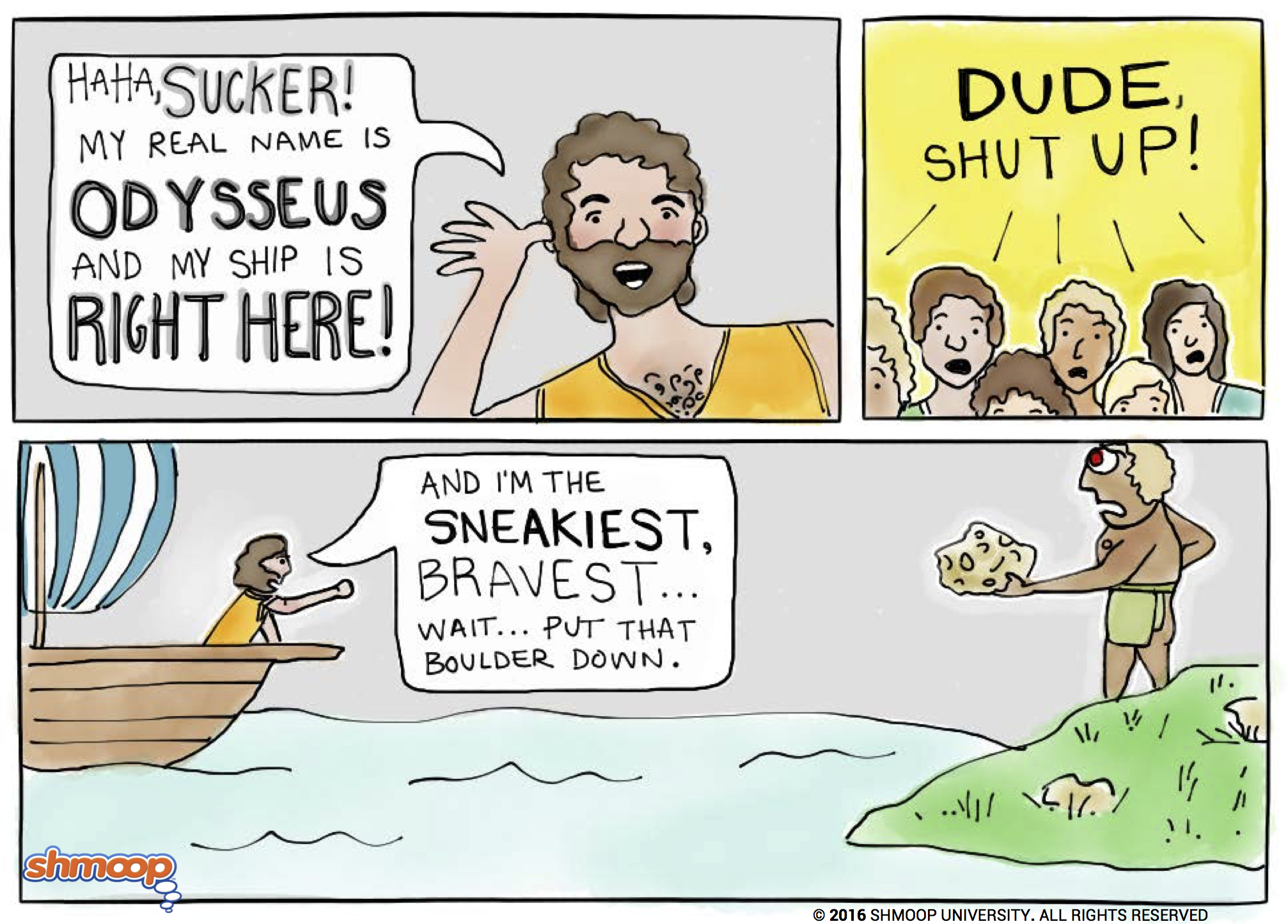 (Click the themes infographic to download.)
(Click the themes infographic to download.)
Fair enough: Odysseus has a lot to be proud of. He's smart, strong, brave, and good-looking; he's married to a hot, loyal wife; and did we mention his pecs? Because he did. Yeah. He's kind of that guy. And a little bit of pride is just fine—it helps get your name out there and win you immortal fame, the super important Greek concept of kleos. But too much pride, and you're going to start ticking people off—or rather, the gods. And no matter how "godlike" Odysseus is, he's still a human. (Even if he doesn't look like one when he takes off his shirt.)
 (Click the infographic to download.)
(Click the infographic to download.)

Questions About Pride
- Is pride mostly good or bad in the Odyssey?
- What is the difference between humility and straight-up weakness in the Odyssey? Which does Telemachos display? Is the answer to this question the same at the beginning of the epic as it is at the end?
- Odysseus seems to learn to check his pride over the course of his adventures. When he meets the Phaiakians, has the change already taken place? Or does it continue all the way through the battle with the suitors?
Chew on This
Odysseus is often justified in showing his pride because he has the goods—muscle, courage, and an honorable name—to back it up.
No character in the Odyssey can afford to have hubris, because it's always an offense against the gods.